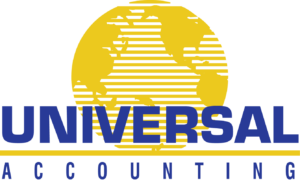This article shows you how to provide accounting and bookkeeping services that are fit to your clients needs.
Here’s a short quiz I don’t think you’ll have difficulty completing:
- All things being equal, would you rather earn $45/hour or $55/hour doing accounting for a business?
- All things being equal, would you rather have a $250/month clients or a $400/month client?
These questions may appear to take the record for the all-time dumbest questions ever asked. But, when you are working for yourself, sometimes these are questions that beg asking – it’s a question of economics.
You might recall from your high school economics class that supply and demand drive the pricing structure of the free world. The most obvious contemporary example is the computer industry where competition has been driving the prices of computer hardware down every year. As more computer manufacturers have entered the playing field the supply has increased beyond demand, and prices have fallen, and fallen, and fallen even further.
This principle can work for or against any business — even accountants. When we specialize in providing accounting for industries where there’s high demand, but limited competition, we can find clients more readily and charge a higher fee for our services. This is putting the law of supply and demand in our favor.
Why will some businesses pay more for bookkeeping than others?
The business world is “information hungry.” Managers/Owners want the latest information on the economy, their industry, and most particularly their business — and they want it now.
Fifty years ago a business owner might have been the only “game” in town. They might have been the only hospital, car dealer, or dentist. Not anymore. With competition being what it is, business management needs to keep on top of their business more so now than ever before. If they’re not watching their business, they may not have a business to watch.
That’s certainly where the accountant comes in. Through a well-designed information system, uniquely fit to their business, the accountant can give management the information they want and need when they want it.
THE KEY IS TO FIT THE SYSTEM TO THE BUSINESS. To meet their needs we must understand their business and fit the accounting system accordingly. A contractor, for instance, driving a pickup truck with papers stashed and stuck everywhere imaginable, needs to have a different system in place, than does the local hairdresser. An automobile dealership needs to have a system that will track each car separately for both control and flooring (inventory finance) purposes.
Now, I know what you’re thinking: “Don’t all businesses use debits and credits alike?” The answer is “yes” and “no.” It’s true that debits are on the left, and credits on the right. But each business has different types of transactions and different accounts to follow. For instance, the automotive business has three accounts that are somewhat unique to that industry. Namely, Flooring Payable, Contracts in Transit, and Bank Reserve accounts.
The construction industry, particularly builders and developers, work with Jobs in Progress and Progress Billings. Manufacturing businesses must have a system in place that will track progress of raw materials and labor through to the finished product so that the owners can establish their cost per unit.
Since the universities and colleges don’t teach these small business concepts, the opportunities are great for the accountant knowledgeable about these areas. To confirm this, next time you talk with an accounting graduate ask them how “Flooring Payable,” “Contracts in Transit,” and “Bank Reserve Account” are used. Chances are very good that they won’t have a clue.
Now, before you get critical of their training or capability remember that the colleges are grooming them for the Fortune 500 — not the used car dealer. All these concepts I’ve mentioned in this article are small business issues for businesses typically employing less than 100 employees.
We recognized the value of these concepts years ago, so our course, covers all types of businesses including those that I’ve mentioned above. And the course is suitable for the beginning accountant and for the college graduate. You will even have an opportunity to do the books for these businesses and practice them for yourself before working on the real thing. You’ll find more information on our complete accounting course under Accounting Made Easy.
Well, should you specialize in a higher demand industry? That depends on your answer to these two questions. Do you want to make more money? Do you have the knowledge to work with these businesses? If your answer to both these last two questions is “yes” then you might want to consider answering “yes” to the first question, as well.
Share this post: on Twitter on Facebook on Google+




